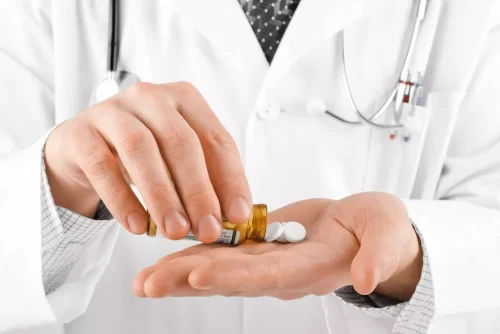Understanding Alcohol Use Disorder National Institute on Alcohol Abuse and Alcoholism NIAAA

Internal factors include genetics, psychological conditions, personality, personal choice, and drinking history. External factors include family, environment, religion, social and cultural norms, age, education, and job status. For many people, alcohol seems inextricably linked with a social life. Friends gather for after-work drinks, spouses have cocktails together for “date nights” or some may just be in the habit of ending the day with a beer or a glass of wine—or two—or more. It can be hard to identify the lines between casual and occasional drinking and unhealthy alcohol use including alcohol use disorder.

Signs and symptoms
People who drink too much alcohol are at risk of developing a host of health conditions and disorders including certain types of cancer, liver disease, and heart disease. Excessive alcohol consumption can damage the brain and other organs, causes of alcoholism and it also increases the chances of developing sleep problems, depression, and other mental health problems. Alcohol can interfere with a person’s ability to care for their other medical conditions or make other medical conditions worse.
Biological Factors
In some countries and states, it is significantly harder and more expensive to acquire alcohol than in others. With less access, it is less likely that an individual develops alcoholism. The more pervasive the presence of alcohol in an environment, the more likely an individual is to develop alcoholism.
How Alcoholism Risk Factors Affect Treatment And Relapse
- However, how you cope with these feelings can impact certain behavioral traits.
- Alcoholics Anonymous is a decades-old treatment, but one that research shows is effective.
- The more familiar term “alcoholism” may be used to describe a severe form of AUD, but physicians, researchers, and others in the medical community tend not to use the word.
- Alcohol poisoning also can occur when adults or children accidentally or intentionally drink household products that contain alcohol.
- Their work may decline as well, and they may lose a spiritual or religious practice they once valued.
While some individuals can limit the amount of alcohol they consume, others feel a strong impulse to keep going. For some, alcohol gives off feelings of pleasure, encouraging the brain to repeat the behavior. Repetitive behavior like this can make you more vulnerable to developing alcoholism. Cultures where drinking is considered shameful may cause alcoholics to hide their condition and avoid treatment due to the stigma of being labeled an alcoholic. Finally, epidemiologists need a definition of alcoholism that enables them to identify alcoholics within a population that may not be available for individual examination.

Cognitive behavioral therapy is another path, available in person or online. Non-abstinence-based recovery models—such as Moderation Management—advocate for reducing one’s alcohol consumption rather than abstaining completely. As mentioned above, long-term overconsumption of alcohol has also been linked to many conditions, including cardiovascular disease; several types of cancer; neurological disorders (including Alzheimer’s disease); and stroke. Many people with alcohol use disorder hesitate to get treatment because they don’t recognize that they have a problem. An intervention from loved ones can help some people recognize and accept that they need professional help. If you’re concerned about someone who drinks too much, ask a professional experienced in alcohol treatment for advice on how to approach that person.
Social barriers
- Given the power of alcohol on the brain, people who drink heavily may come to rely on it to regulate their mood.
- A purely pharmacological-physiological definition of alcoholism classifies it as a drug addiction that requires imbibing increasing doses to produce desired effects and that causes a withdrawal syndrome when drinking is stopped.
We’re here 24/7 to help guide you or your loved on through rehab and recovery. Submit your number to receive a call today from a treatment provider. Treatment providers are available 24/7 to answer your questions about rehab, whether it’s for you or a loved one. Submit your number and receive a free call today from a treatment provider. If you or a loved one is ready to overcome an alcohol addiction, reach out today.
Rates in countries around the eastern Mediterranean and in Southeast Asia are much lower. Overall, rates in Africa are low, but they are very high in the new urban slums. “Excessive alcohol consumption can cause nerve damage and irreversible forms of dementia,” Dr. Sengupta warns. But there’s plenty of research to back up the notion that alcohol does lead to weight gain in general.
Finding Detox and Treatment
- At present there is no evidence that this predisposition depends upon a single gene.
- Many of these ads show drinking as an acceptable, fun and relaxing pastime.
- While approximately 50 percent of a person’s risk for alcoholism appears to be tied to one’s genetic makeup, other factors such as emotions, physical health and upbringing can all play a role.
The decline in the body’s water content is significant because “alcohol is a water-soluble substance,” says Alison Moore, director of the Stein Institute for Research on Aging and the UC San Diego Center for Healthy Aging. This is when a male rapidly consumes five or more alcoholic drinks within two hours or a female consumes at least four drinks within two hours. Alcohol poisoning is a serious — and sometimes deadly — result of drinking large amounts of alcohol in a short period of time. Drinking too much too quickly can affect breathing, heart rate, body temperature and gag reflex. Find support for yourself and other family members in a rehab family program. Go to an Al-Anon or Alateen meeting or set up an appointment with a mental health professional.
